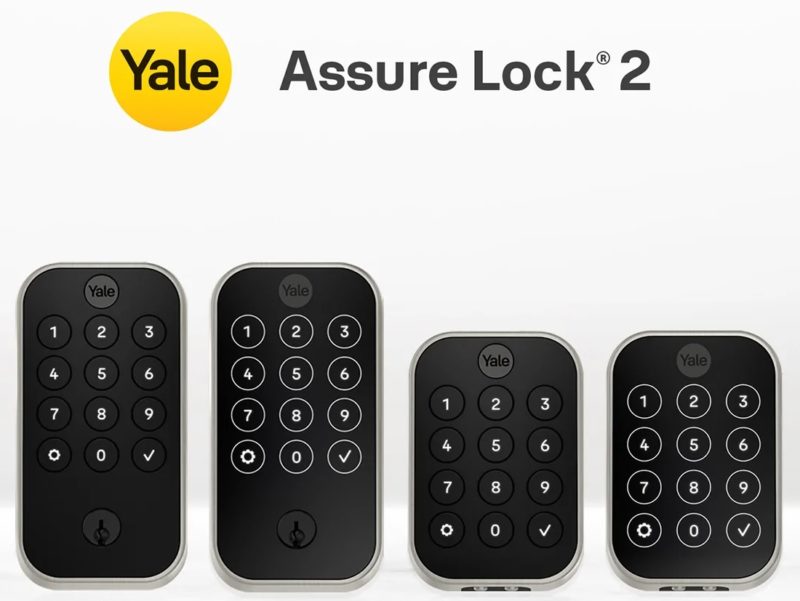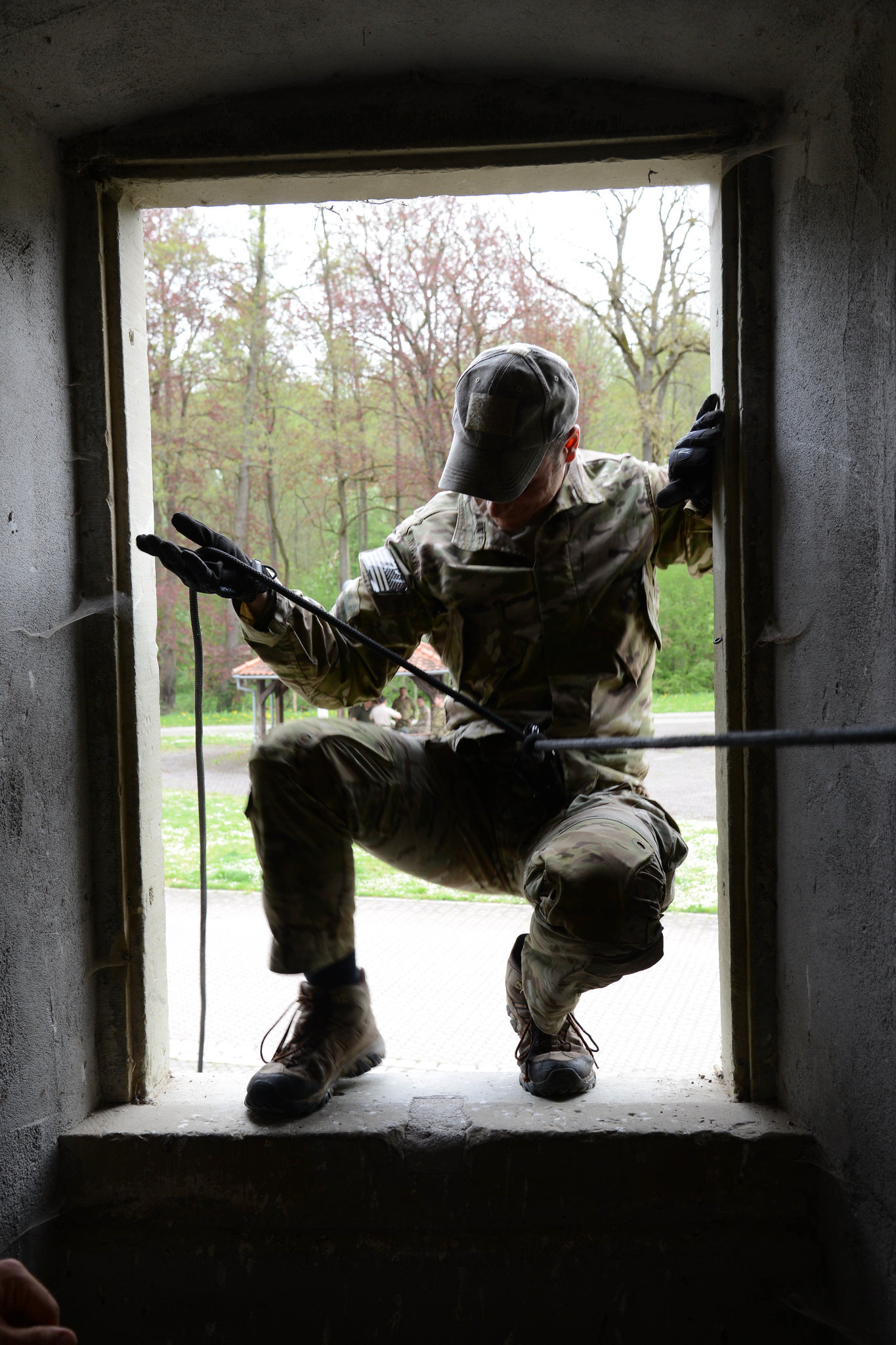Running a “smart” home is often fraught with peril. For example, during an Internet outage you might actually have to get off the couch to manually adjust a light or thermostat. The horror! Adding insult to injury, there are also times you may have to actually break into your own home to overcome its “smarts” … as Consumer Reports analyst Dan Wroclawski just discovered.
Finally back inside my house after climbing through a small unlocked window I found. Checked the smart lock and it’s battery weren’t dead, it just went completely dumb. Rebooted it and now it works fine ?
— Dan Wroclawski (@danwroc) January 23, 2023
This is basically the worst case scenario for a smart lock. While this sort of catastrophic failure (you had one job) wouldn’t surprise me from Wyze, this possibility is shocking from industry leader Yale and their newest offering, the Assure 2. (I do not feel at all ‘assured.’)

Yale is currently investigating the incident with Dan to determine what failed and how to prevent a repeat. However, I’m a bit shook and suggest only contemplating keyed smart locks when going down this path. Fortunately, Yale does offer keyed Assure 2 variants. Also, I was previously satisfied with an August lock retrofit (same company), while others seem to appreciate Level’s low-profile approach.
(Header photo by 7th Army Training Command via CC BY 2.0.)

This is why I am completely in favor of all smart home products being completely backward compatible with their “dumb” counterparts. The Level lock, Lutron cassetta switches, etc. These are all products that don’t require anyone to care or know anything about whether they are smart or not and they still operate as normal.
The nerds can do all of the smarts and automation you want and your grandma can still flip a switch on the wall to turn a damn light on or off.
I don’t care to give technical directions to someone needing to get in my home on how to unlock a front door and would rather just give them a dumb key.
I have an August lock powered by batteries, and it’s not foolproof enough to not have a key backup when no one is left in the house. I’ve gone big with smart home automation in terms of lighting, thermostats, sensors. And while the other components have their flaws here and there, the door lock is definitely the least reliable part of the system.
Seriously — who in their right mind would get a lock for their house that can’t be operated by a key. I mean, its so obvious that batteries can and do die, sometimes without warning.
I agree w/ @Bryan above — the first Casstta switch I had in my house was installed by my electrician without me even knowing it was smart because the previous homeowner had a switch for outside spotlights located only in the garage and not in the house where we wanted to control it, so they installed it to have a remote switch. I have since purchased one of their bridges and have it connected but the switch (and remotes) are 100% functional without internet connectivity as simple switches.
Michael, a number of locks have battery backup for emergency. For example, Dan’s Yale has external contacts on the bottom for a 9v. It’s not necessarily convenient, but beats a blank. Unfortunately, battery ultimately wasn’t the issues or resolution in this case. Which is why I’m saying a smart lock with a keyhole is the safest approach. Some would argue, but then you’re still susceptible to bumping. But I assume that’s a rarity in the real world and smart locks are more about convenience. Except when they’re not… :/
My family has stayed at my parental in-laws twice in the last few months when they’ve been away and we’ve relied on their Yale lock code. No key, three hours from home now seems somewhat risky! Will have to rethink our next visit.
Despite it’s storied history, I’m not sure there’s any reason to put more trust in a Yale smart lock than in a Wyze, August, Nest, or anything else.
Yale’s almost two centuries of experience with old-timey locks means very little when it comes to coding secure and reliable software for a smart lock. Yale is subject to the same technical limitations and temptations (e.g. sloppy coding) as all the other vendors. Honestly, it wouldn’t surprise me if Yale farms out smart lock work to a third party.
We all put a bit too much value on brands, especially when a established company gets into the new version of something. It doesn’t mean anything.
Smart locks are a dicey proposition, no matter what company’s name is slapped on…
Joseph, I agree with your general sentiment (and have often derided anthropomorphism or team picking when it comes to brands). However, my Yale opinion is based on a solid track record as one of the more reliable (and compatible) solutions — I know several including my occasional co-author Adam Miarka who swears by them and my parental in-laws who’ve had a flawless experience. I do concede it’s a small sample size, but also Twitter follower/followee buzz factors in as well. (Conversely, I’ve had several terrible experiences with Wyze and have seen similar from their forums.)
FYI Yale’s parent company augmented their smarts by acquiring August years ago and there’s much digital overlap under the hood.
https://www.theverge.com/2017/10/19/16502790/august-home-acquisition-assa-abloy
I’ve used Kwikset smart locks on two of our doors for many years, with the other doors still using traditional keyed locks. They are integrated into our home security and automation system. Overall, I’m happy with them, but they are not foolproof, as sometimes a battery dies quicker than anticipated, or they need a reboot to get out of whatever frozen state they find themselves in. But, that is not atypical for any smart device.
They do also operate using traditional keys, and I always keep a key with me as standard practice, though the kids do not. Because we have two entrances with the smart locks, if one fails and cannot be used to unlock the door using the keypad, chances are the other is not suffering the same failure at the same time. The kids have found this helpful on occasion.
Fair enough. If I decide to get serious about smart locks, I’ll give Yale a serious look.